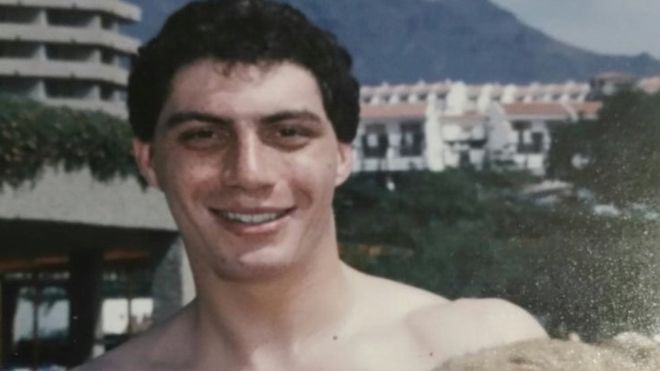Man dies after ambulance service computer crashes on New Year's Eve
Paramedics took almost 50 minutes to arrive
Friday, 22nd September 2017 — By Joe Cooper

Victor Bede
A MAN who died after London Ambulance Service’s computer system crashed was subject to an “unacceptable” wait for an ambulance, an inquest heard.
Paramedics took almost 50 minutes to arrive after it was first called to Westbourne Grove, Bayswater on New Year’s Day.
Victor Bede was seen stumbling at the junction with Queensway before falling and hitting his head close to the Sainsbury’s Local.
A 999 call was made at 2.18am but the call was abandoned nine minutes later after the caller was unable to get through, because of the huge number of calls being made to the LAS.
An operator called back and Mr Bede was assigned as Red Two, the second most urgent type of call.
He was upgraded to Red One when an LAS call handler was told Mr Bede had stopped breathing.
An ambulance arrived shortly after 3am but Mr Bede, who had taken a huge amount of methamphetamine – known as crystal meth – was pronounced dead that morning. Mr Bede, 53, had lived in Edgware Road for almost 20 years and had many friends in the area. The Crystal Palace fan was said to have been a formidable chess player, sportsman, and gambler by his brother, Rob Reason.
The huge number of calls being made and the computer system failure contributed to the delay, Sue Watkins, head of quality assurance at LAS, told Westminster Coroner’s Court on Tuesday. Call handlers had to switch to a paper system, writing down notes which were then faxed to control rooms in Bow and Waterloo.
The computer crash also made it harder to pinpoint where ambulances were, making planning more difficult. Questioned by Mr Bede’s family, Ms Watkins said the wait was “unacceptable”. “Victor should have had a response sooner and that is regrettable,” she added.
LAS’s computer system went down at 12.30am, just as calls were surging after new year celebrations, and did not come on again until 5.30am. An earlier software upgrade had stopped the system’s recycle bin emptying automatically, forcing a shut-down when it quickly became full. In that time, LAS received more than 2,300 calls – three times the seasonal average.
Ms Watkins explained that LAS take on large numbers of extra staff to cope with demand and practice runs with the paper system are frequently undertaken in preparation for just such an event. Questions were raised about the possibility of Mr Bede’s life being saved if the ambulance had arrived sooner, but coroner Dr Shirley Radcliffe said she had not heard any evidence to support that point.
The court heard Mr Bede had around seven times the recreational dose of methamphetamine, for which there is no antidote, in his system on the night he died. It also heard that the success rate for resuscitation for people who suffer cardiac arrest on the streets of London is just nine per cent. Dr Radcliffe said Mr Bede died of methamphetamine poisoning.
“Of all the times this was perhaps the worst time to have a computer failure because it was such a busy time,” she said.
The 999 system crashed again in April this year when it could not be re- booted for 13 hours after planned maintenance. There had been 10 other crashes since December 2013.
The ambulance service said it was not possible for the system to crash again in the same way it did on January 1.
LAS medical director Dr Fenella Wrigley said: “We are very sorry that it took us longer to get to Mr Bede than it should have done and I’d like to again extend our condolences to his family.
“We have met Mr Bede’s family and talked through what happened.
“It was our busiest night of the year and our computer system stopped working due to a technical fault.
“The call handler stayed on the line to the caller and as soon as it was reported that Mr Bede had stopped breathing, the call was upgraded, we sent multiple resources and an ambulance crew arrived 12 minutes later.
“There was also a very confused picture from the scene, with the phone being passed between several people and the description of the patient’s presentation changing.
“We conducted a thorough investigation into what happened and have made a number of changes, including strengthening our IT leadership team and changing processes in the control room so that calls can be handled more effectively when using the manual system.”
In a statement issued after the inquest on behalf of the family, Mr Reason said: “We believe that our sad loss has at least contributed to a greater resilience of the service that LAS provides to Londoners and, possibly, to citizens of other parts of the country.”